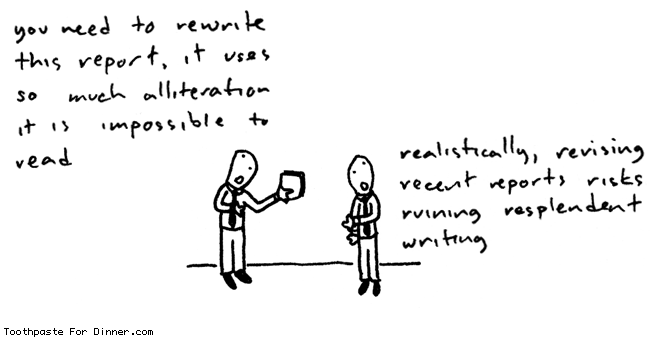
A few years ago I was pretty sure I knew everything about Microsoft Word. Of course, the day I hit the "Track Changes" button, I realized I'd been missing out on something huge. Those of you in the publishing world might have had a similar revelation, but in my short time in the field, I've realized some people are still missing out. For the sake of my own sanity--not to mention yours--I'm not turning this blog into a Word tutorial. If you're looking for instructions, head over to Microsoft's website.
The benefits are pretty easy to identify. You can
- literally record everything you change while you type
- insert comments and queries just like you would while line editing a manuscript
- and keep track of multiple reviewer' comments.
An individual editor who switches to a strictly electronic review process can only make so much of a dent in the practices of an entire company. Unless entire work-flows shift to make use of technology, the costly inefficiency will continue. While I entirely respect the creative process and some writers' need for paper, I just don't think editors should continue working without electronic editing and work-flows. Undoubtedly the transition will be tough and we'll all have to get better at working with the programs our companies chose to use. The thought that we can do away with time consuming copying, bulky print-outs, and all the energy we currently spend manually tracking changes in a manuscript just outweighs the work we'll do changing our habits.
Next blog, I'll be bringing in some real life examples of how technology has helped the editing process (beyond the copy-paste revolution, of course) and hopefully have thoughts from people getting the most out of their electronic resources. Until then, I'd love to hear what you all have to say: any EA's out there dying to stop copying? Or any that think it'd be impossible to switch?


1 comment:
Last time I wrote for publication we used that Microsft editting feature, and it was much more precise than getting an e-mail with a list of pages and what needs to be changed on them, and much, much better than handing paper around like a hot potato. I've used the editting feature with my students' drafts as well, and that was great. I say down with paper drafts!
Post a Comment